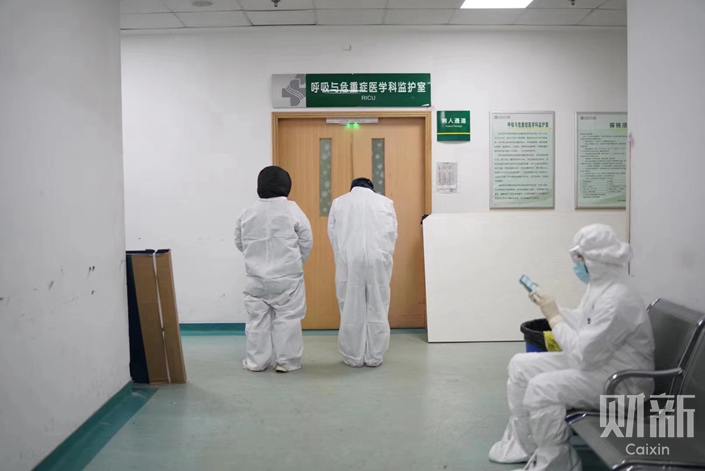Opinion: China Needs to Institutionalize Whistleblower Protection

We are deeply saddened by the death of Li Wenliang, one of the first whistleblowers to alert people about the new coronavirus, and offer our sincere condolences to his family. We also want to restate here that whistleblowers in China should be better protected.
The concept of the whistleblower originated from the British police’s practice of blowing a whistle to get the attention of colleagues and the public for specific crimes. Now the term whistleblower refers to professionals who discover signs of crisis and quickly send out warnings in the name of public interest, aimed at alerting governments, societies and individuals to actively respond. Thus in theory, everyone in modern society could be a whistleblower or informant.
American newspaper publisher Joseph Pulitzer once described the function of whistleblowers as giving an early social warning. “A journalist is the lookout on the bridge of the ship of state,” he wrote. “He notes the passing sail, the little things of interest that dot the horizon in fine weather. He reports the drifting castaway whom the ship can save. He peers through fog and storm to give warning of dangers ahead. He is not thinking of his wages or of the profits of his owners. He is there to watch over the safety and the welfare of the people who trust him.”
Read More
Whistleblower Li Wenliang Dies of the Disease
Whistleblower Doctor Who Died Fighting Coronavirus Only Wanted People to ‘Know the Truth’
In reality, besides journalists, many professionals could also become whistleblowers, including doctors, police, soldiers and firefighters. Usually, they are just like us, ordinary people living our own daily lives. But when risk or crisis comes, they are able to quickly charge to the frontline to watch over our societies.
We need specific institutional arrangements to better protect whistleblowers. First, we must legally protect their rights, encouraging them to dare to blow the whistle and be good at it; second, we must make sure they won’t be punished, or bear excessive, harsh consequences because of their words. Thus, a top-down system is required to protect them from any attacks from behind.
In terms of power, whistleblowers are more interested in finding the truth. Power has no monopoly on the truth, and thus it should remain humble. In carrying out the rule of administrative or criminal law, the government should tolerate whistleblowers’ actions. Governments should also amend relative laws and regulations to clarify the legal boundaries of whistleblowers’ conduct in terms of their impact on social order. If there are disagreements, those in power should provide sufficient and material evidence to show the nature of a whistleblower’s intention. Such guidelines would be the preconditions and foundation for protecting whistleblowers.
We must also point out that such measures are not only for the protection of whistleblowers, but also for society to maintain flexibility and balance various public interests. Otherwise, if whistleblowers and the public remain silent on issues of consequence, it will add to the pressure on society and make it more jaded, which will hurt the government’s credibility and make it more difficult for all of us to overcome crisis.
The better protection of whistleblowers requires a relaxed and free society. Tension, oppression and inflexibility will not nurture whistleblowers when they are needed during times of crisis, let alone provide them with institutional protection.
Institutional protection for whistleblowers also reflects values we share. Society should realize that effective design of a whistleblower protection system is, in nature, for mankind to seek a balance between freedom and order; and to maximize public interest during peace and wartime. It requires both judgment from wise leaders and understanding, participation and compliance from the public. We should seize the moment and put such an institutional arrangement in place as soon as possible.
As the whole country mobilizes to fight the new coronavirus epidemic, we must also reflect on the social, legal and moral environment for whistleblowers here.
Here we restate: prevention and control of the epidemic needs transparency and whistleblower protection in an open society, and support from the press and the public’s understanding. Society should also advocate for placing a moral value — be it among government officials or the general public — that makes everyone more willing to become whistleblowers and embrace the mission of doing what’s right for the people. That way, when crisis hits again, we can take effective action supported by concrete institutional arrangements to help one another.
Translated by Lu Zhenhua (zhenhualu@caixin.com), edited by Yang Ge (geyang@caixin.com)

- PODCAST
- MOST POPULAR





